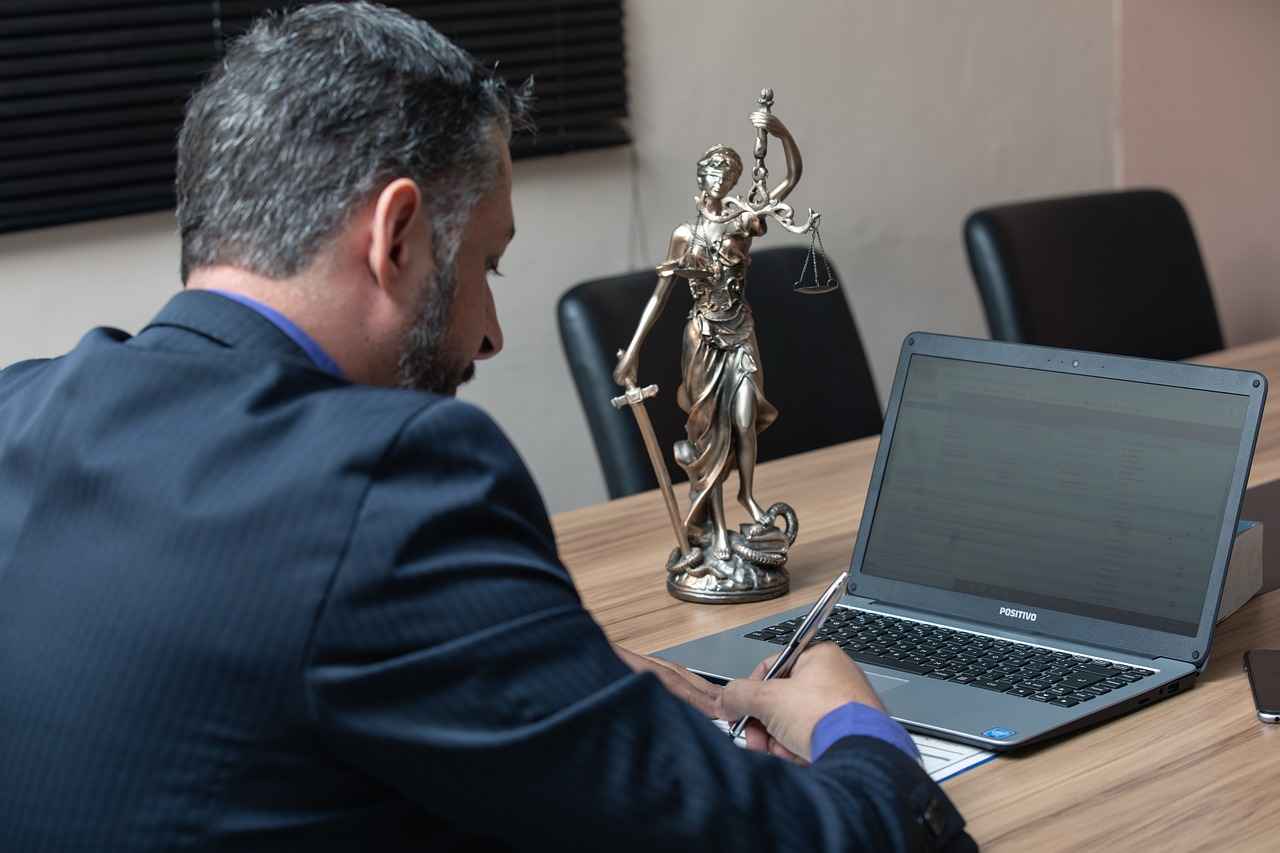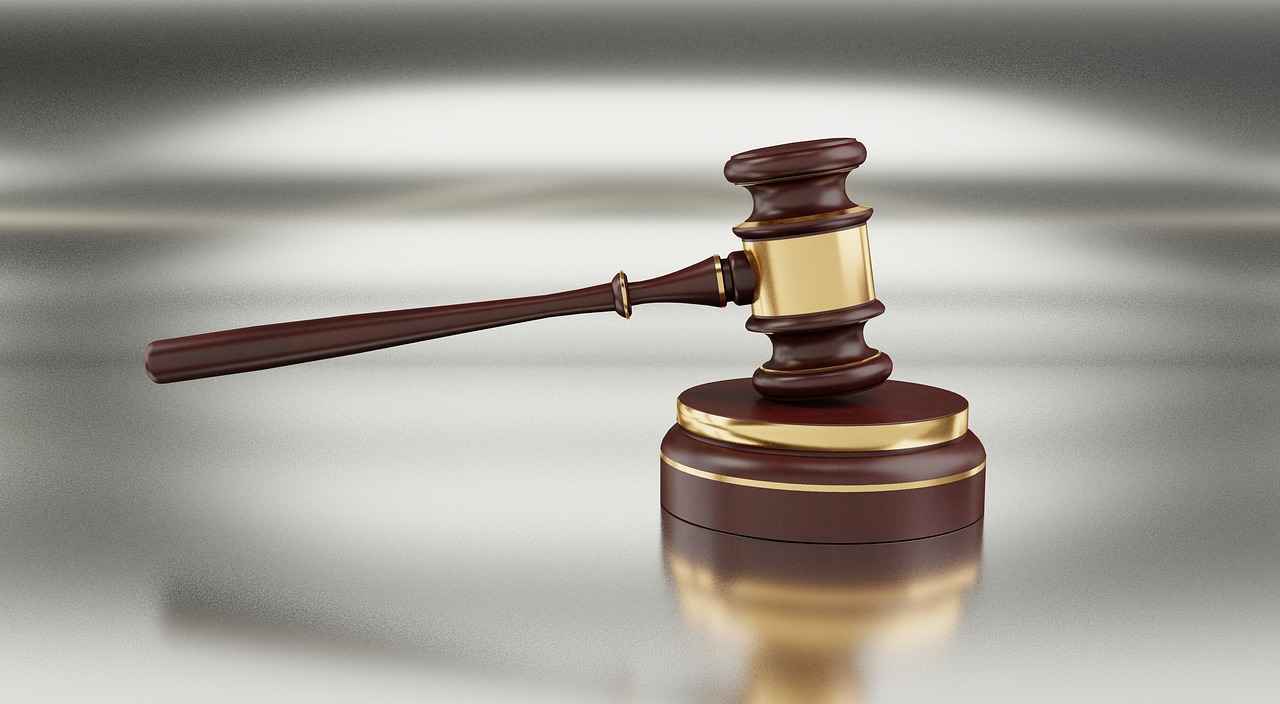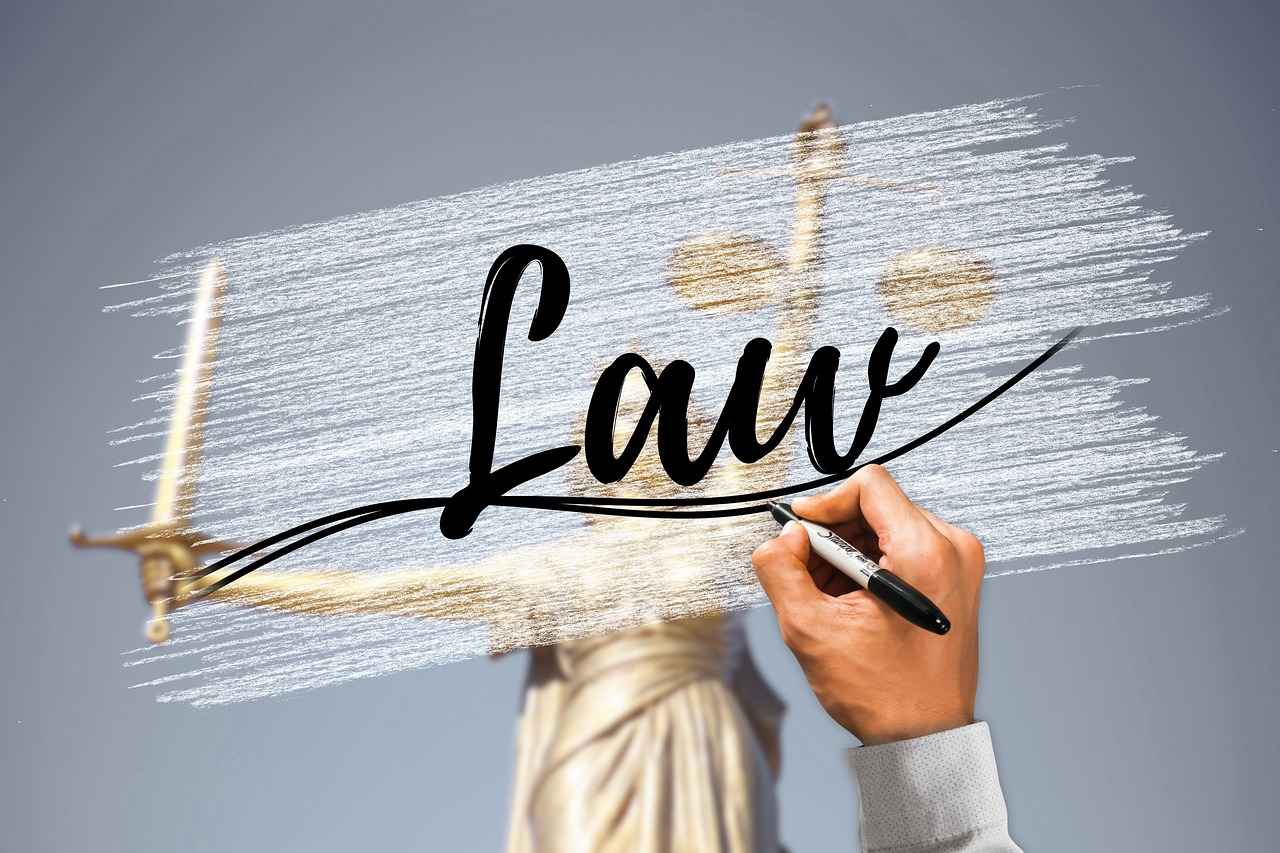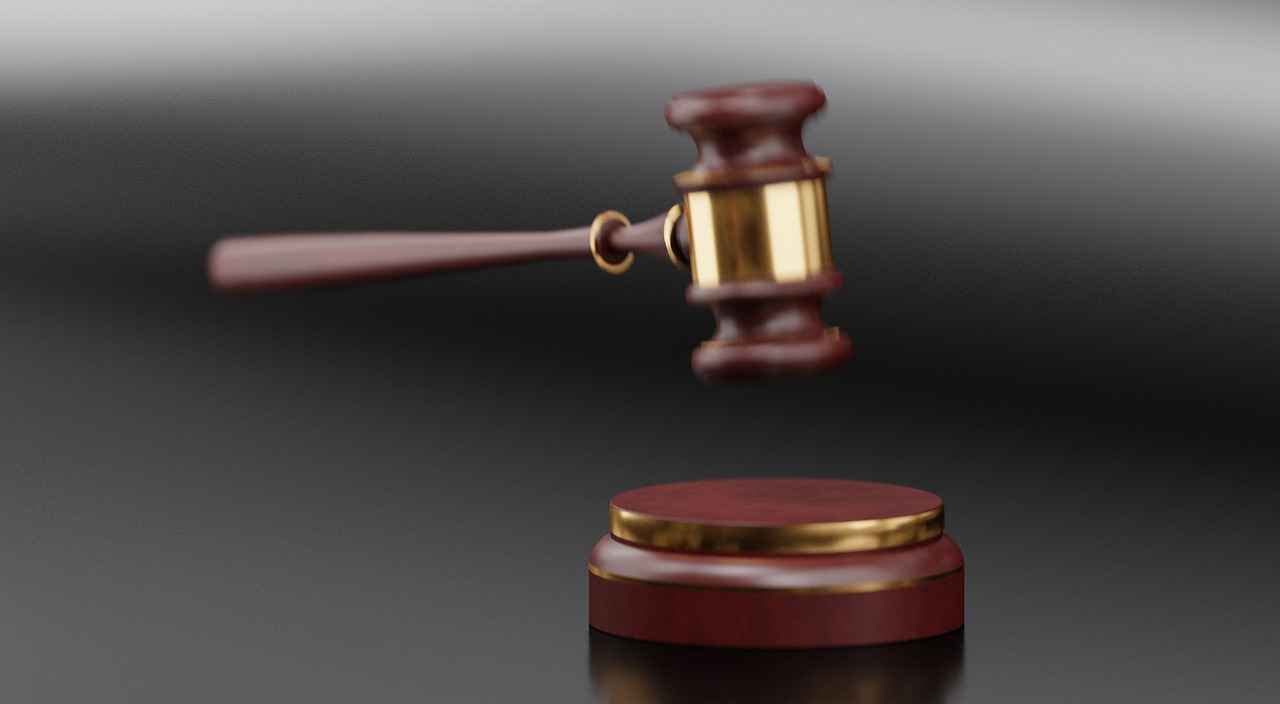This article serves as a comprehensive guide for individuals seeking qualified legal representation in Henderson, Nevada. It covers various types of legal cases and offers practical tips for finding the right attorney.
Understanding Personal Injury Cases
Personal injury cases are among the most prevalent legal disputes, typically arising from accidents or negligence. When searching for a qualified attorney in Henderson, it is essential to consider their experience in handling similar cases. Look for attorneys who have a proven track record of securing favorable settlements or verdicts for their clients. Additionally, you can utilize online legal directories and review platforms to check client testimonials and ratings.
Medical Malpractice: Seeking Justice
Medical malpractice involves negligence by healthcare professionals, leading to patient harm. To identify experienced attorneys in this complex field, seek out those who specialize in medical malpractice law. Verify their credentials, such as board certifications and memberships in professional organizations. A good starting point for your search is the American Association for Justice, which can provide a list of qualified attorneys in your area.
Breach of Contract: Protecting Your Interests
Breach of contract cases often arise in business disputes. Finding an attorney who specializes in contract law is crucial for safeguarding your rights. Look for lawyers with experience in commercial litigation and a successful history of resolving contract disputes. Check their educational background and past case outcomes to gauge their expertise.
Property Disputes: Navigating Real Estate Issues
Property disputes can be intricate and emotionally charged. Selecting a skilled attorney who understands real estate law can facilitate effective conflict resolution. Seek recommendations from real estate professionals or check local bar association referrals. It’s beneficial to interview potential attorneys to assess their familiarity with local real estate laws and regulations.
Landlord-Tenant Disputes: Understanding Your Rights
Landlord-tenant disputes are common in rental agreements. Finding an attorney who specializes in housing law can help both landlords and tenants navigate these issues. Look for attorneys who are well-versed in local housing regulations and have experience in representing either landlords or tenants. Online legal forums can also provide insights into attorneys who are knowledgeable in this area.
Defamation: Protecting Your Reputation
Defamation cases, including libel and slander, can severely impact one’s reputation. It is vital to find a competent attorney experienced in handling these sensitive matters. Check for attorneys who have successfully litigated defamation cases and understand the nuances of free speech laws. Referrals from trusted sources can also lead you to reputable legal professionals.
Employment Disputes: Your Rights at Work
Employment disputes can stem from wrongful termination, discrimination, or harassment. Knowing how to find an attorney experienced in employment law can protect your rights in the workplace. Look for attorneys who are members of employment law associations and have a history of advocating for employee rights. Online reviews can provide valuable insights into their effectiveness in handling similar cases.
Product Liability Cases: Holding Companies Accountable
Product liability cases involve injuries caused by defective products. Identifying an attorney with expertise in this area is crucial for victims seeking justice. Look for attorneys who have experience with product liability claims and a history of successful litigation against manufacturers. It is also helpful to check if they have published articles or spoken at industry events on the topic.
Wrongful Death: Seeking Justice for Loved Ones
Wrongful death cases are emotionally challenging and legally complex. Finding an empathetic and knowledgeable attorney is critical for families seeking justice for their loved ones. Seek attorneys who specialize in wrongful death cases and have a compassionate approach to client representation. Personal referrals can often lead to trustworthy legal counsel in these sensitive matters.
Class Action Lawsuits: Joining Forces for Justice
Class action lawsuits allow individuals to band together against a common defendant. Understanding how to find a qualified attorney to lead these cases can enhance the chances of success. Look for attorneys who have experience in class actions and have successfully represented large groups of plaintiffs. Legal directories and bar association referrals can be invaluable resources in this search.
Criminal Defense: Protecting Your Freedom
Criminal defense cases, including drug offenses and theft, require skilled legal representation. Identifying a reputable attorney can significantly impact the outcome of these serious charges. Look for attorneys who specialize in criminal defense and have a strong track record in handling cases similar to yours. Online legal directories can help you find qualified criminal defense attorneys in your area.
Family Law: Navigating Divorce and Custody Issues
Family law encompasses divorce, child custody, and support issues. Finding a compassionate and experienced attorney can help individuals navigate these emotionally charged legal matters. Seek attorneys who specialize in family law and have a history of successfully resolving custody disputes. Referrals from friends or family can also provide valuable insights into potential attorneys.
Bankruptcy: Finding Financial Relief
Bankruptcy cases provide individuals and businesses a fresh start. Understanding how to find a knowledgeable bankruptcy attorney can help navigate the complexities of the process effectively. Look for attorneys who specialize in bankruptcy law and have experience in both Chapter 7 and Chapter 13 filings. Online reviews and client testimonials can help you assess their effectiveness in guiding clients through bankruptcy proceedings.

Understanding Personal Injury Cases
Personal injury cases represent a significant portion of legal disputes in the United States, often stemming from accidents or negligence. These cases can arise from various scenarios, including car accidents, slip and fall incidents, and workplace injuries. Understanding the nuances of personal injury law is crucial for victims seeking justice and compensation for their injuries. In this section, we will explore how to find a qualified attorney to represent you in personal injury cases, ensuring that you receive the best possible outcome.
When searching for a personal injury attorney, it is essential to consider the following factors:
- Experience: Look for attorneys with a proven track record in personal injury law. They should have extensive experience handling cases similar to yours.
- Specialization: Choose an attorney who specializes in personal injury law, as they will be more familiar with the specific legal nuances and strategies needed to win your case.
- Reputation: Research online reviews and testimonials from previous clients. A reputable attorney will have positive feedback and a solid standing in the legal community.
- Success Rate: Inquire about their success rate in settling cases or winning trials. A high success rate can indicate their effectiveness as a legal representative.
- Communication: Ensure that the attorney communicates clearly and effectively. They should be willing to answer your questions and keep you informed about the progress of your case.
To find qualified personal injury attorneys, consider the following methods:
- Referrals: Ask friends, family, or colleagues for recommendations. Personal referrals can provide valuable insights into an attorney’s capabilities.
- Online Directories: Utilize online legal directories such as Avvo, FindLaw, or the American Bar Association’s lawyer referral service to search for qualified attorneys in your area.
- Consultations: Many personal injury attorneys offer free initial consultations. Use this opportunity to discuss your case and evaluate the attorney’s approach and demeanor.
- Local Bar Association: Contact your local bar association for a list of qualified attorneys specializing in personal injury law.
It is also crucial to be aware of red flags when hiring a personal injury attorney. Avoid attorneys who:
- Promise guaranteed outcomes, as no attorney can guarantee results.
- Pressure you into signing a contract immediately without providing adequate time for consideration.
- Have a history of disciplinary actions or complaints filed against them.
In conclusion, finding the right personal injury attorney can significantly impact the outcome of your case. By considering the factors mentioned above and utilizing various methods to search for qualified legal representation, you can increase your chances of receiving fair compensation for your injuries.

Medical Malpractice: Seeking Justice
Medical malpractice is a serious issue that arises when healthcare professionals fail to provide the standard of care expected in their field, leading to patient harm. This can include errors in diagnosis, treatment, aftercare, or health management. Victims of medical malpractice often face not only physical and emotional pain but also significant financial burdens due to medical expenses and lost wages. Therefore, understanding how to navigate this complex legal landscape is essential for those seeking justice and compensation.
When looking for a qualified attorney in the field of medical malpractice, it is crucial to consider several factors:
- Experience and Specialization: Look for attorneys who specialize in medical malpractice law. Their experience in handling similar cases can significantly impact the outcome. An attorney with a proven track record in medical malpractice will be familiar with the nuances of the law and the medical issues involved.
- Credentials: Verify the attorney’s credentials, including their education, bar association membership, and any additional certifications in personal injury or medical malpractice law. Membership in professional organizations, such as the American Association for Justice, can indicate a commitment to their field.
- Client Reviews and Testimonials: Research online reviews and testimonials from previous clients. Websites like Avvo and Martindale-Hubbell provide ratings and reviews that can offer insight into an attorney’s reputation and success rate.
- Initial Consultation: Many attorneys offer a free initial consultation. Use this opportunity to ask about their experience with medical malpractice cases, their approach to handling your case, and their fee structure. A good attorney will be transparent and willing to answer your questions.
- Communication Style: Choose an attorney who communicates clearly and effectively. You want someone who will keep you informed throughout the process and is approachable when you have questions or concerns.
Additionally, it’s important to be aware of red flags when selecting an attorney:
- Lack of Experience: Be cautious of attorneys who claim to handle a broad range of legal issues but have little experience specifically in medical malpractice.
- High Pressure Sales Tactics: If an attorney pressures you to sign a contract immediately or promises guaranteed outcomes, consider it a warning sign.
- Poor Communication: If an attorney is difficult to reach or does not respond promptly to your inquiries during the initial consultation, this may indicate a lack of commitment to your case.
In major metropolitan areas like New York City, Los Angeles, and Chicago, the competition among attorneys can be fierce. Utilize online legal directories, local bar association referrals, and personal recommendations to find reputable attorneys specializing in medical malpractice. Networking within local support groups for victims of medical malpractice can also provide valuable insights and referrals.
In conclusion, navigating the world of medical malpractice law can be daunting, but with the right approach, individuals can find qualified attorneys who will advocate for their rights and work diligently to secure the compensation they deserve. By focusing on experience, specialization, and effective communication, victims can take the first step towards obtaining justice.

Breach of Contract: Protecting Your Interests
Breach of contract cases are prevalent in the business world, often leading to significant disputes between parties. A breach occurs when one party fails to fulfill their obligations as outlined in a legally binding agreement. This can happen for various reasons, including financial difficulties, misunderstandings, or intentional non-compliance. In such scenarios, it is crucial to have a knowledgeable attorney specializing in contract law to help safeguard your rights and interests.
When seeking legal representation for a breach of contract case, there are several important factors to consider. First and foremost, look for an attorney with extensive experience in contract law. This expertise is vital, as contract disputes can involve complex legal principles and require a deep understanding of the nuances of various agreements.
Additionally, consider the attorney’s track record with similar cases. A lawyer who has successfully handled breach of contract cases in the past is more likely to navigate your situation effectively. You can ask for references or case studies that demonstrate their success in achieving favorable outcomes for clients.
Another key aspect is the attorney’s communication skills. A good attorney should be able to explain legal concepts clearly and keep you informed throughout the process. This is particularly important in breach of contract cases, where negotiations and potential settlements can be intricate. Having a lawyer who can articulate your position and advocate on your behalf is essential.
In major metropolitan areas like New York City, Los Angeles, and Chicago, you can leverage various platforms to find qualified attorneys. Websites such as Avvo and FindLaw offer directories of lawyers along with reviews and ratings from past clients. These platforms can help you gauge an attorney’s reputation and suitability for your case.
When evaluating potential candidates, pay attention to their credentials. Look for attorneys who are members of professional organizations such as the American Bar Association or state bar associations. Membership in these organizations often indicates a commitment to ethical standards and ongoing education in the legal field.
Be wary of red flags during your search. Avoid attorneys who make unrealistic promises about the outcome of your case or those who pressure you to sign contracts quickly. A reputable lawyer will provide a realistic assessment of your situation and allow you the time to make informed decisions.
Furthermore, consider the attorney’s fee structure. Many attorneys offer free initial consultations, allowing you to discuss your case and understand potential costs before committing. Be clear about billing practices and ensure you are comfortable with the fee arrangement, whether it’s hourly, flat-rate, or contingency-based.
In conclusion, navigating a breach of contract case can be daunting, but with the right legal representation, you can protect your interests and work towards a resolution. By focusing on experience, communication, and reputable credentials, you can find a qualified attorney who will advocate for your rights and help you achieve a favorable outcome.

Property Disputes: Navigating Real Estate Issues
Property disputes are often complicated and can become emotionally charged due to the personal and financial stakes involved. These disputes may arise from various issues, including boundary disagreements, easements, zoning issues, or disputes over property rights. To effectively navigate these challenges, it is crucial to select a skilled attorney who specializes in real estate law.
In major metropolitan areas like New York City, Los Angeles, and Chicago, finding the right legal representation can be daunting. Here are some practical steps to help you identify a qualified attorney for your property dispute:
- Research Specialization: Look for attorneys who specialize in property law. Their expertise will ensure they are familiar with local laws and regulations.
- Check Credentials: Verify their education, years of experience, and any certifications in real estate law. Membership in professional organizations, such as the American Bar Association, can also be a good indicator of their commitment to the field.
- Online Reviews: Utilize platforms like Avvo or Martindale-Hubbell to read reviews and ratings from past clients. This can provide insight into their reputation and effectiveness.
- Consultations: Many attorneys offer free initial consultations. Use this opportunity to ask questions about their experience with similar cases and their approach to resolving disputes.
- Ask About Fees: Understanding the attorney’s fee structure is essential. Inquire whether they charge a flat fee, hourly rate, or a contingency fee based on the outcome of the case.
- Red Flags: Be wary of attorneys who make unrealistic promises or guarantee outcomes. A reputable attorney will provide a realistic assessment of your case.
When you engage an attorney, ensure they communicate clearly and keep you informed throughout the process. A good attorney will not only represent your interests but also help you understand the legal complexities involved in your case.
In summary, navigating property disputes requires careful consideration and the right legal support. By following these steps, you can find an attorney who will effectively advocate for your rights and work towards a resolution that meets your needs.

Landlord-Tenant Disputes: Understanding Your Rights
Landlord-tenant disputes are frequent occurrences in the realm of rental agreements, often leading to conflicts that can be both emotional and financially draining. These disputes can arise from various issues, including non-payment of rent, property maintenance concerns, or disagreements over lease terms. Understanding your rights as either a landlord or a tenant is crucial for navigating these challenges effectively.
When seeking legal representation for landlord-tenant issues, it is essential to find an attorney who specializes in housing law. Here are some steps to help you locate the right legal expert:
- Research Local Attorneys: Start by searching for attorneys in your area who focus on housing law. Websites like Avvo and FindLaw can provide valuable listings and reviews.
- Check Credentials: Look for attorneys who are members of local or national housing law associations. Credentials such as certifications in landlord-tenant law can also indicate expertise.
- Read Reviews: Online reviews and testimonials can provide insight into an attorney’s track record. Look for patterns in feedback, especially regarding communication and case outcomes.
- Consultation: Schedule a consultation with potential attorneys to discuss your case. This meeting allows you to gauge their understanding of landlord-tenant issues and their approach to resolving disputes.
- Ask About Fees: Understanding the attorney’s fee structure is vital. Some may charge hourly rates, while others might work on a flat fee or contingency basis.
It is also important to be aware of common red flags when hiring an attorney:
- Lack of Communication: If an attorney is difficult to reach or does not respond promptly to inquiries, this may indicate potential issues down the line.
- Pressure Tactics: Be wary of attorneys who pressure you to make quick decisions or sign contracts without fully explaining the terms.
- No Clear Strategy: An experienced attorney should provide a clear outline of how they plan to approach your case and what you can expect.
Landlord-tenant disputes can be complex, often involving local laws and regulations. Therefore, having a knowledgeable attorney by your side can make a significant difference in the outcome of your case. Whether you are a landlord seeking to evict a non-compliant tenant or a tenant facing unjust eviction, understanding your rights and having the right legal representation is key.
In major metropolitan areas like New York City, Los Angeles, and Chicago, the demand for housing law attorneys is high. Therefore, it is essential to act quickly and make informed decisions when selecting legal representation. By following these guidelines, you can secure the best possible attorney for your landlord-tenant dispute, ensuring that your rights are protected and that you receive fair treatment under the law.

Defamation: Protecting Your Reputation
Defamation cases, encompassing libel and slander, can have a profound effect on an individual’s reputation and livelihood. When false statements are made about a person, it can lead to significant emotional distress and damage to their personal and professional life. Therefore, understanding the nuances of defamation law is crucial for anyone who believes they have been wronged.
What is Defamation?
Defamation refers to any false statement that injures a person’s reputation. It can be categorized into two main types:
- Libel: Written defamation, which includes statements made in print, online, or through other visual media.
- Slander: Spoken defamation, typically involving verbal statements made in person or through audio recordings.
Both forms of defamation can lead to serious consequences for the victim, including loss of employment opportunities, strained relationships, and emotional turmoil. Thus, it is essential to seek legal advice if you believe you are a victim of defamation.
Finding the Right Attorney for Defamation Cases
When facing a defamation issue, the first step is to find a competent attorney who specializes in this area of law. Here are some key considerations to keep in mind:
- Experience: Look for an attorney with a proven track record in handling defamation cases. Their experience can significantly impact the outcome of your case.
- Specialization: Ensure the attorney specializes in defamation law or has substantial experience in media law, as these areas overlap significantly.
- Reputation: Research online reviews and testimonials. A lawyer with a solid reputation in the community is likely to provide quality representation.
- Consultation: Take advantage of initial consultations, often offered for free. This meeting can help you gauge the attorney’s understanding of your case and their approach.
Platforms to Find Qualified Attorneys
Several platforms can assist you in locating qualified attorneys in your area:
- Avvo: A widely-used platform that provides ratings, reviews, and details about attorneys’ backgrounds.
- Martindale-Hubbell: A trusted resource for finding lawyers, offering peer-reviewed ratings and client feedback.
- LegalMatch: A service that matches clients with attorneys based on their specific legal needs.
Red Flags to Avoid
While searching for an attorney, be cautious of certain red flags that may indicate a lack of professionalism or competence:
- Unclear Fees: If an attorney is not transparent about their fee structure, it may lead to unexpected costs later on.
- Poor Communication: If the attorney is unresponsive during initial communications, it may be a sign of future communication issues.
- Lack of References: A reputable attorney should be able to provide references or testimonials from past clients.
In conclusion, navigating a defamation case requires careful consideration and the right legal representation. By understanding what to look for in an attorney and utilizing available resources, individuals can better protect their reputation and seek justice in the face of false allegations.

Employment Disputes: Your Rights at Work
Employment disputes can create significant challenges for both employees and employers. These disputes often stem from issues such as wrongful termination, discrimination, and harassment. Understanding your rights in the workplace and knowing how to find a qualified attorney experienced in employment law are crucial steps in protecting those rights.
When faced with an employment dispute, the first step is to document everything related to the issue at hand. Keep records of any incidents, including dates, times, and the names of individuals involved. This documentation will be invaluable when discussing your case with a potential attorney.
Next, consider the following methods to find a skilled employment attorney:
- Referrals: Ask friends, family, or colleagues if they can recommend a reputable attorney. Personal experiences can provide valuable insights.
- Online Platforms: Websites like Avvo or FindLaw allow you to search for attorneys based on their area of expertise and location. Look for attorneys with high ratings and positive reviews.
- State Bar Association: Check the local or state bar association’s website for a list of licensed attorneys specializing in employment law. This ensures that the attorney is in good standing and has the necessary qualifications.
- Consultations: Many attorneys offer free initial consultations. Use this opportunity to discuss your case and gauge the attorney’s expertise, communication style, and approach to handling employment disputes.
When evaluating potential attorneys, consider the following credentials and qualities:
- Experience: Look for an attorney with a proven track record in employment law cases similar to yours. Experience can significantly impact the outcome of your case.
- Specialization: Ensure the attorney specializes in employment law, as this field requires specific knowledge of relevant laws and regulations.
- Communication: A good attorney should communicate clearly and be responsive to your questions and concerns. This is vital for a successful attorney-client relationship.
- Reputation: Research the attorney’s reputation within the legal community. Look for any disciplinary actions or complaints filed against them.
It is also important to be aware of red flags when hiring an attorney. Avoid attorneys who:
- Promise guaranteed outcomes, as no attorney can guarantee a specific result.
- Pressure you into making quick decisions without allowing you to consider your options.
- Have poor communication skills or are difficult to reach.
In conclusion, employment disputes can be complex and emotionally taxing. By taking the time to research and find a qualified attorney, you can ensure that your rights are protected and that you receive the legal support necessary to navigate your situation effectively. Whether you are in New York City, Los Angeles, Chicago, or another busy metropolitan area, the right attorney can make all the difference in achieving a favorable outcome.

Product Liability Cases: Holding Companies Accountable
Product liability cases are crucial in ensuring that consumers are protected from unsafe products that can cause serious injuries or even fatalities. These cases arise when a defective product leads to harm, and they can involve various parties, including manufacturers, distributors, and retailers. Understanding the complexities of product liability law is essential for victims seeking justice and compensation.
When navigating a product liability case, it is vital to identify an attorney who specializes in this area of law. A qualified attorney will have a deep understanding of the relevant regulations and standards that govern product safety. They will also be familiar with the legal precedents that can influence the outcome of a case. Here are some key factors to consider when searching for the right attorney:
- Experience in Product Liability Law: Look for attorneys who have a proven track record in handling product liability cases. Their experience can significantly affect the chances of a successful outcome.
- Client Testimonials: Reading reviews and testimonials from former clients can provide insight into the attorney’s effectiveness and approach to handling cases.
- Professional Credentials: Check for memberships in relevant legal associations, such as the American Association for Justice (AAJ) or state bar associations, which can indicate a commitment to staying updated on legal standards.
- Initial Consultation: Many attorneys offer free initial consultations. Use this opportunity to discuss your case and evaluate the attorney’s communication style and understanding of your situation.
- Contingency Fees: Many product liability attorneys work on a contingency fee basis, meaning they only get paid if you win your case. This arrangement can alleviate financial pressure while pursuing justice.
It is also essential to be aware of red flags when hiring a product liability attorney. For instance, if an attorney guarantees a specific outcome or pressures you into making quick decisions, these may be signs of untrustworthiness. Additionally, be cautious of attorneys who lack clear communication or fail to provide a detailed explanation of the legal process.
In major metropolitan areas like New York City, Los Angeles, and Chicago, the competition among lawyers can be intense. Therefore, utilizing online platforms such as Avvo, FindLaw, or LegalMatch can help you compare attorneys based on their specialties, ratings, and client reviews. Moreover, local bar associations often provide referral services that can connect you with experienced attorneys in your area.
Ultimately, product liability cases are not just about seeking compensation; they are about holding companies accountable for their negligence. By finding a knowledgeable and trustworthy attorney, victims can navigate the legal landscape more effectively and ensure their rights are protected.

Wrongful Death: Seeking Justice for Loved Ones
Wrongful death cases are among the most devastating legal matters that families can face. The loss of a loved one due to someone else’s negligence or intentional actions leaves an emotional void that can be incredibly challenging to navigate. These cases not only involve complex legal questions but also require a deep understanding of the emotional toll they take on families. It is essential to find a compassionate and experienced attorney who can guide you through this difficult process and help you seek justice.
When searching for the right attorney for a wrongful death case, consider the following practical steps:
- Research and Referrals: Start by asking friends, family, or colleagues for recommendations. Personal referrals can lead you to attorneys who have successfully handled similar cases.
- Check Credentials: Look for attorneys who specialize in wrongful death cases. Check their educational background, years of experience, and success rates in similar cases.
- Read Reviews: Online platforms like Avvo, Martindale-Hubbell, and Google Reviews can provide insights into an attorney’s reputation and client satisfaction.
- Consultations: Many attorneys offer free initial consultations. Use this opportunity to discuss your case and evaluate the attorney’s responsiveness and empathy.
- Assess Communication Skills: A good attorney should communicate complex legal concepts clearly and be accessible for questions throughout the process.
- Discuss Fees: Understand the attorney’s fee structure. Most wrongful death cases operate on a contingency fee basis, meaning they only get paid if you win your case.
In wrongful death cases, the burden of proof lies with the plaintiff, which means your attorney must be skilled in gathering evidence, interviewing witnesses, and presenting a compelling case in court. Look for an attorney who has experience in litigation, as many wrongful death cases settle out of court, but having a lawyer who can effectively argue your case in front of a jury is crucial.
Additionally, consider the emotional intelligence of the attorney. This type of case requires not only legal expertise but also a deep understanding of the grief and trauma that families experience. An attorney who exhibits empathy and compassion can make a significant difference in how you navigate your case.
Finally, be wary of red flags when selecting an attorney. Avoid lawyers who make unrealistic promises or seem more interested in settling quickly than in achieving justice for your loved one. Trust your instincts; if something feels off, it might be best to continue your search.
In conclusion, wrongful death cases are complex and emotionally charged. Finding the right attorney is crucial for navigating the legal landscape and achieving justice for your loved one. By conducting thorough research, assessing credentials, and ensuring a good fit both professionally and personally, you can find an attorney who will advocate for your family’s rights during this difficult time.

Class Action Lawsuits: Joining Forces for Justice
Class action lawsuits represent a powerful legal mechanism that allows a group of individuals with similar grievances to collectively pursue a defendant, often resulting in a more efficient and effective resolution than individual lawsuits. These cases can arise from various issues, including consumer fraud, environmental disasters, and corporate misconduct. Understanding how to navigate this complex legal landscape is crucial for individuals seeking justice.
When considering a class action lawsuit, the first step is to identify a qualified attorney with experience in this specific area of law. Here are some practical tips to help individuals find the right legal representation:
- Research Law Firms Specializing in Class Actions: Look for law firms that have a proven track record in handling class action lawsuits. Websites and legal directories can provide insights into a firm’s history and success rate.
- Check Credentials: Ensure that the attorney is licensed to practice in your state and has relevant experience in class action litigation. Membership in professional associations, such as the American Association for Justice, can also indicate a commitment to this area of law.
- Read Client Reviews: Online reviews and testimonials can provide valuable insights into a lawyer’s reputation and the experiences of past clients. Look for consistent feedback regarding the attorney’s communication, professionalism, and results.
- Schedule Consultations: Many attorneys offer free initial consultations. Use this opportunity to discuss your case and gauge the attorney’s expertise and approach. Prepare questions about their experience with class action lawsuits and their strategy for your case.
- Evaluate Communication Skills: Effective communication is vital in legal matters. Choose an attorney who listens to your concerns, explains complex legal terms clearly, and keeps you informed throughout the process.
- Assess Their Resources: Class action lawsuits can be resource-intensive. Ensure that the attorney or law firm has the necessary resources, including financial backing and access to expert witnesses, to handle your case effectively.
- Understand Fee Structures: Many class action attorneys work on a contingency fee basis, meaning they only get paid if you win. Make sure to discuss and understand the fee structure before hiring an attorney.
In major metropolitan areas like New York City, Los Angeles, and Chicago, the competition among attorneys can be fierce. Therefore, it’s essential to conduct thorough research and consider multiple candidates before making a decision. Additionally, look for attorneys who have successfully represented clients in similar cases, as this experience can significantly enhance your chances of success.
Class action lawsuits can be a powerful tool for individuals seeking justice against larger entities. By following these guidelines and conducting diligent research, you can find a qualified attorney who will advocate for your rights and help you navigate the complexities of the legal system effectively.

Criminal Defense: Protecting Your Freedom
When faced with serious allegations such as drug offenses or theft, the stakes are incredibly high. Criminal defense cases can lead to severe penalties, including imprisonment, hefty fines, and a lasting criminal record. Therefore, securing skilled legal representation is crucial for anyone navigating the complexities of the criminal justice system. In this article, we will explore how to find the best attorneys to protect your freedom and rights in such cases.
First and foremost, it is essential to understand the unique nature of criminal law. Unlike civil cases, where the burden of proof is often lower, criminal cases require the prosecution to prove guilt beyond a reasonable doubt. This means that having an experienced attorney who specializes in criminal defense is not just beneficial but necessary. They can challenge the evidence against you, negotiate plea deals, and represent you in court.
When searching for a reputable criminal defense attorney, consider the following methods:
- Referrals: Ask friends, family, or colleagues if they can recommend a good attorney. Personal experiences can provide valuable insights.
- Online Platforms: Websites like Avvo, Martindale-Hubbell, and FindLaw offer directories of lawyers, including reviews and ratings that can help you gauge their reputation.
- State Bar Association: Check your state’s bar association for a list of licensed attorneys in your area. This is a reliable source to ensure that the lawyer is in good standing.
- Consultation: Many attorneys offer free initial consultations. Use this opportunity to discuss your case, assess their communication style, and determine if they are a good fit for you.
As you evaluate potential attorneys, pay attention to their credentials and experience:
- Specialization: Ensure the attorney specializes in criminal defense, particularly in the area relevant to your case, such as drug offenses or theft.
- Track Record: Inquire about their success rate in similar cases. An attorney with a proven history of favorable outcomes can be a significant asset.
- Trial Experience: If your case goes to trial, you want an attorney who is comfortable and experienced in the courtroom.
However, not all lawyers are created equal. Be wary of red flags that may indicate a less-than-reputable attorney:
- High Pressure Sales Tactics: If an attorney pressures you to hire them immediately, it’s a warning sign. A good lawyer will give you time to make an informed decision.
- Lack of Transparency: If the attorney is vague about fees or the process, it may indicate they are not trustworthy. Always ask for a clear fee structure.
- Poor Communication: If you struggle to get in touch with them during the initial consultation, it may be a sign of future communication issues.
In metropolitan areas like New York City, Los Angeles, and Chicago, the competition among criminal defense attorneys can be fierce. Therefore, it is crucial to take your time in selecting the right representation. Look for attorneys who are active in local legal communities, as they often have a better understanding of local laws and procedures.
Additionally, consider the attorney’s involvement in professional organizations such as the National Association of Criminal Defense Lawyers (NACDL) or local bar associations. Membership in such organizations indicates a commitment to staying updated on legal developments and best practices in criminal defense.
Finally, trust your instincts. Choose an attorney who makes you feel comfortable and confident in their abilities. Your legal representation can significantly impact the outcome of your case, so take the time to find someone who meets your needs and standards.

Family Law: Navigating Divorce and Custody Issues
Family law is a multifaceted area that addresses various legal matters including divorce, child custody, and support issues. These situations often arise during some of the most emotionally charged times in individuals’ lives. Understanding the intricacies of family law can be overwhelming, and finding a compassionate and experienced attorney is crucial for navigating these challenges effectively.
When seeking legal representation in family law, it is essential to consider several factors. First and foremost, look for an attorney who specializes in family law. This specialization ensures that the attorney has the necessary knowledge and experience to handle your specific case. You can start your search by asking for referrals from friends or family, or by checking online legal directories.
In major metropolitan areas such as New York City, Los Angeles, and Chicago, you have access to a vast pool of legal professionals. Utilize platforms like Avvo or FindLaw to read reviews and compare attorney profiles. Pay attention to credentials, such as board certifications in family law, as these can indicate a higher level of expertise.
It’s also important to conduct interviews with potential attorneys. Prepare a list of questions to assess their experience with cases similar to yours. Inquire about their approach to mediation versus litigation, as well as their availability for communication throughout the process. A good attorney should be able to explain complex legal terms in a way that is easy to understand.
One red flag to watch for is an attorney who guarantees specific outcomes. Family law cases, particularly those involving children, can be unpredictable, and no attorney should promise a particular result. Additionally, be cautious of attorneys who pressure you into making quick decisions or who seem more interested in billing hours than in your well-being.
Understanding the financial aspects of family law is also crucial. Be sure to discuss fee structures upfront, including retainer fees and hourly rates. Some attorneys may offer payment plans or flat fees for specific services, which can be beneficial in managing your budget during this challenging time.
Finally, consider the emotional support that an attorney can provide. Family law matters can be deeply personal, and having an attorney who demonstrates empathy and understanding can make a significant difference in your experience. Look for someone who listens to your concerns and prioritizes your needs throughout the legal process.
In summary, navigating family law issues such as divorce and custody requires careful consideration when selecting an attorney. By focusing on specialization, conducting thorough research, and being mindful of red flags, you can find a legal professional who will advocate for your best interests during this challenging time.

Bankruptcy: Finding Financial Relief
Bankruptcy can be a daunting process for both individuals and businesses, but it offers a pathway to financial relief and a fresh start. Understanding the intricacies of bankruptcy law and the importance of hiring a qualified attorney can significantly ease this journey. Here’s a comprehensive guide to navigating the bankruptcy process and finding the right legal representation.
Understanding Bankruptcy Types
There are several types of bankruptcy filings, with Chapter 7 and Chapter 13 being the most common for individuals. Chapter 7, often referred to as “liquidation bankruptcy,” allows for the discharge of most unsecured debts, while Chapter 13 enables individuals to reorganize their debts and create a repayment plan over three to five years. Businesses may file for Chapter 11 bankruptcy to restructure their debts while continuing operations. Understanding these differences is crucial in determining the best path forward.
Why You Need a Bankruptcy Attorney
Navigating the bankruptcy process can be complex, with various legal requirements and paperwork involved. A knowledgeable bankruptcy attorney can guide you through this maze, ensuring that all necessary documents are filed correctly and in a timely manner. They can also help you understand your rights and obligations, represent you in court, and negotiate with creditors on your behalf.
How to Find a Qualified Bankruptcy Attorney
- Research and Referrals: Start by asking friends, family, or financial advisors for recommendations. Online reviews and testimonials can also provide insights into an attorney’s reputation.
- Check Credentials: Look for attorneys who specialize in bankruptcy law and have experience handling cases similar to yours. Verify their credentials and ensure they are licensed to practice in your state.
- Consultation: Many bankruptcy attorneys offer a free initial consultation. Use this opportunity to discuss your situation, ask questions, and gauge their expertise and approach.
- Transparency: A good attorney will be transparent about their fees and the bankruptcy process. Be wary of any attorney who makes unrealistic promises or pressures you into making quick decisions.
Red Flags to Avoid
When selecting a bankruptcy attorney, it’s essential to be aware of potential red flags. Avoid attorneys who lack experience in bankruptcy law, have numerous complaints against them, or are unwilling to provide references. Additionally, be cautious of those who guarantee specific outcomes, as bankruptcy outcomes can vary based on individual circumstances.
Utilizing Online Platforms
In today’s digital age, various online platforms can help you find qualified bankruptcy attorneys. Websites like Avvo, FindLaw, and the National Association of Consumer Bankruptcy Attorneys (NACBA) offer directories of attorneys, along with ratings and reviews. These platforms can help you compare different attorneys and find one that fits your needs.
Understanding Costs and Fees
Bankruptcy attorneys typically charge either a flat fee or hourly rate. It’s vital to discuss fees upfront and understand what services are included. Some attorneys may offer payment plans, which can be helpful if you’re already facing financial difficulties. Make sure to clarify any additional costs that may arise during the process.
Preparing for Your Consultation
Before meeting with a bankruptcy attorney, prepare a list of questions and gather necessary documents, such as income statements, tax returns, and a list of debts. This preparation will help your attorney understand your financial situation better and provide more tailored advice.
Conclusion
Finding the right bankruptcy attorney can significantly impact your financial recovery journey. By conducting thorough research, asking the right questions, and being aware of potential pitfalls, you can secure the legal representation you need to navigate the bankruptcy process successfully.
Frequently Asked Questions
- What should I look for in a personal injury attorney?
When searching for a personal injury attorney, focus on their experience, track record, and client reviews. A good attorney should have a deep understanding of personal injury law and a proven history of winning cases similar to yours.
- How can I determine if an attorney specializes in medical malpractice?
Check their website for specific practice areas and look for certifications or memberships in professional organizations related to medical malpractice. Additionally, reading client testimonials can provide insight into their expertise in this field.
- What are the benefits of hiring a lawyer for breach of contract disputes?
Hiring a lawyer can help you navigate the complexities of contract law, ensuring that your rights are protected. They can assist in negotiating settlements, representing you in court, and providing valuable legal advice throughout the process.
- How do I find a good attorney for landlord-tenant disputes?
Look for attorneys who specialize in housing law and have experience with landlord-tenant issues. Reading reviews and asking for recommendations can help you find someone who understands your specific situation.
- What should I expect during a wrongful death case?
Expect a challenging emotional journey, as these cases can be complex and lengthy. A knowledgeable attorney will guide you through the legal process, helping you seek justice and compensation for your loss.














